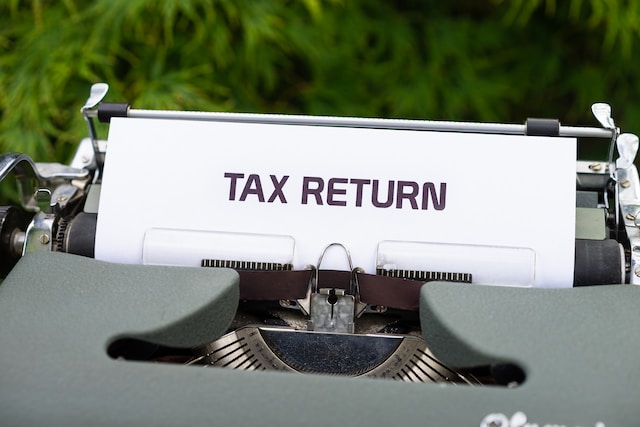
Tax nexus refers to a relationship between a business entity and a taxing jurisdiction. There are four main types: income tax nexus, sales and use tax nexus, franchise tax nexus, and excise tax nexus. If your business has one of these types of nexus in a state, you may need to pay the corresponding tax type there.
Determining where you have each type of nexus is a critical—and complicated—compliance task. Nexus criteria and qualification thresholds vary by state. Some states also “test” for nexus in different ways.
Determining tax nexus in California
California uses both a physical test and an economic test to determine nexus. The physical test evaluates a business’s physical presence in a state, and the economic test relies on dollar figures. While a business needs to have an office, warehouse, store, employee, or contractor in the state to qualify under the physical test, it’s possible to qualify under the economic test even if neither you nor any of your employees ever set foot there.
California is one of a growing number of states that use economic nexus thresholds to determine a business’s tax obligations. Businesses that qualify under an economic test can be referred to as having “economic nexus.” Economic nexus isn’t a type of nexus—it just means you are determined to have nexus based on an economic test.
CA economic nexus laws to know
California uses an economic test to determine use tax nexus for out-of-state retailers who are engaged in business in the state. Generally, California sales tax applies to in-state sellers, and use tax applies to out-of-state sellers. Sales tax applies to all retail sales of goods and merchandise except those sales specifically exempted by law. Use tax generally applies to the storage, use, or other consumption in California of goods purchased from retailers in transactions not subject to the sales tax. Use tax may also apply to purchases shipped to a California customer from another state, including purchases made by mail order, telephone, or Internet.
California also sets economic thresholds for what constitutes doing business in the state—a business that exceeds the economic nexus thresholds is considered to be “doing business in California” and therefore subject to the state’s tax laws governing sales and use tax, franchise tax, corporate income tax, and excise tax.
Here’s an overview of California’s economic nexus laws.
Assembly Bill No. 147 — Economic nexus test for use tax for out-of-state sellers
Prior to 2018, states typically needed to demonstrate that a business had a physical presence in a state to enforce sales and use tax collection for out-of-state state retailers. But the 2018 Supreme Court ruling South Dakota v. Wayfair, Inc. upheld a South Dakota policy that used economic measures to determine sales tax nexus for goods delivered into South Dakota regardless of the location of the buyer or seller at the time of the sale. In the wake of this ruling, a number of states—including California—passed laws that allow the states to use economic measures to establish use tax nexus for out-of-state businesses.
On April 25, 2019, California passed Assembly Bill No. 147. This bill establishes an economic test for use tax nexus for retailers or marketplace facilitators located outside of the state. Under the law, out-of-state sellers must register with the California Department of Tax and Fee Administration (CDTFA) and collect and remit California use tax if their total combined sales of tangible personal property for delivery in California exceeds $500,000 during the current or prior calendar year. SaaS products delivered remotely are exempt from this requirement.
California Revenue and Taxation Code (RTC) 23101 — Economic nexus thresholds for doing business in California
California’s tax code also applies an economic test to determine what constitutes doing business in the state.
The state considers a company to be doing business in California if a company’s payroll, sales, or its value of tangible personal property in California exceeds either:
- The state Franchise Tax Board (FTB)-determined thresholds in gross dollar amounts, or
- 25% of the business’s total.
Because any company doing business in California is subject to the state’s tax laws, exceeding California’s economic nexus thresholds can establish sales, income, and franchise tax nexus in the state.

What are the implications of having nexus in CA?
If you have nexus in California, you’ll need to register with the state and pay taxes there to avoid compliance violations. Here’s an overview of the implications of each nexus type.
Sales and use tax nexus
If you are engaged in business in California or qualify for use tax nexus under the state’s economic test, you are required to register for a Seller’s Permit with the California Department of Tax and Fee Administration (CDTFA) and must collect and remit sales and use tax on all taxable transactions.
The 2023 California state sales and use tax rate is 7.25%. The CDTFA assigns a filing frequency based on your reported sales tax or your anticipated taxable sales at the time of registration.
Franchise tax nexus
If you are doing business in California, you have franchise tax nexus in the state. The minimum is $800. Consult your CPA to figure out your franchise tax obligations.
Corporate income tax nexus
Corporations doing business in California are subject to the state’s corporate income tax laws and must file a Franchise or Income tax return. The California income tax rate for S corporations is 1.5%, and the rate for most C corporations is 8.84%. The state maintains a tax rate table for a complete list of rates by entity type.
Excise tax nexus
Businesses selling certain types of products can be subject to California’s special taxes and fees, such as excise tax. If you are doing business in California and sell products or services subject to excise tax, you are subject to the state’s excise tax laws and are required to collect and remit taxes to the states.
Navigating nexus requirements
Figuring out where you have nexus can be tricky—and once you figure out where you have it, you’ll need to navigate the implications to maintain compliance. Mosey can help you figure out where you owe taxes and automate the process of opening tax accounts, making it easy for you to pay your taxes and stay compliant.
Mosey is a complete compliance solution for multi-state businesses. Once you import your company information, our platform will automatically determine your requirements across HR, payroll, tax, registration, insurance, and more. Our always-on monitoring system will alert you of upcoming deadlines, tasks, and new legislation. Mosey will also help you open the accounts you need to be compliant in all states, including California. Want to learn more? Schedule a demo—our team is excited to meet you.
Read more from Mosey:
- What Is FUTA? How to Comply With the Federal Income Tax Act
- How to Change Registered Agents in 3 Easy Steps
- Why Incorporate in Delaware? Pros and Cons for Startups
- What Is a Registered Agent & Why Would You Need One?
- LLC Annual Report: What It Is, What’s Included & How to File
- With Paid Family and Medical Leave: 2023 Guide
- Employee vs. Contractor: Understanding the Difference
- What Is Local Tax? States with Local Income Taxes in 2023
- Cell Phone & Internet Reimbursement Laws by State

